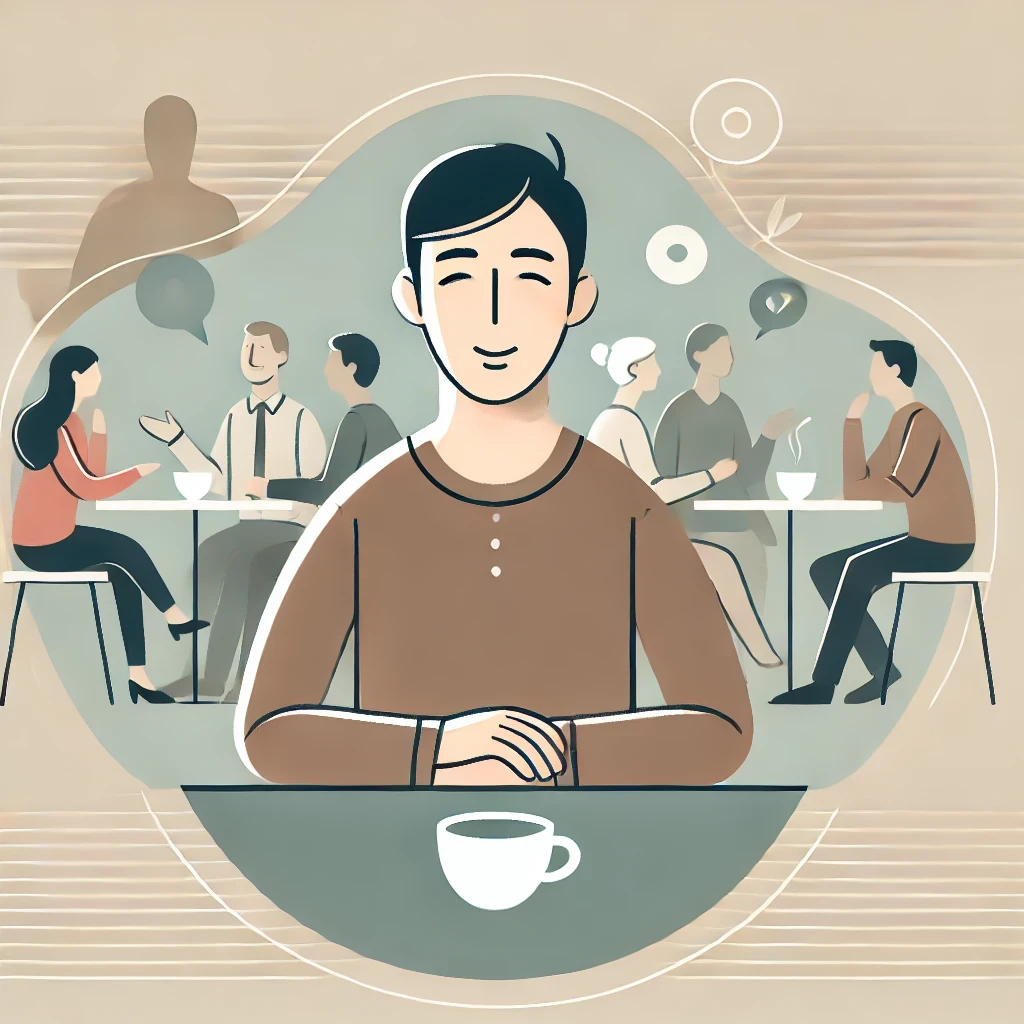8 Myths About Social Anxiety
By: Yisrael Zev Schwartz, LCPC
Social anxiety is one of the most common mental health challenges, yet it’s also one of the most misunderstood. Myths and misconceptions about social anxiety can prevent people from seeking help or understanding their own experiences. Let’s explore some of the most prevalent myths and separate fact from fiction.
CBT Therapy for Social Anxiety in baltimore & Online
At Behavioral Health Direct we provide expert CBT therapy to help individuals overcome challenges related to social anxiety and boost their confidence.
Contact us now and get an in person or teletherapy appointment within a week.
Myth 1: Social Anxiety Is Just Shyness
The Truth: While social anxiety and shyness share some similarities, they are not the same. Shyness is a personality trait that reflects discomfort or awkwardness in social situations. Social anxiety, on the other hand, is a diagnosable mental health condition characterized by intense fear of judgment, embarrassment, or rejection. People with social anxiety may experience physical symptoms like sweating, trembling, or nausea, which go far beyond the occasional nervousness of shy individuals.
Myth 2: Social Anxiety Isn’t That Serious
The Truth: Social anxiety can significantly impact a person’s quality of life. It’s not just about feeling nervous in social situations; it’s about avoiding them altogether due to overwhelming fear. This avoidance can interfere with relationships, education, career opportunities, and everyday tasks like grocery shopping or making phone calls. Social anxiety is a serious condition that requires understanding and, in many cases, professional support.
Myth 3: Social Anxiety Means You’re Introverted
The Truth: While introverts and people with social anxiety might both prefer solitude at times, the two are not synonymous. Introversion is a personality trait characterized by a preference for less stimulating environments. Social anxiety is rooted in fear and worry about social interactions. Extroverts can also experience social anxiety, struggling with self-consciousness and fear despite their natural tendency to seek out social connections.
Myth 4: Social Anxiety Will Go Away on Its Own
The Truth: Social anxiety rarely resolves without intervention. While some individuals may find their symptoms improve over time, others may find their anxiety worsening if left unaddressed. Effective treatments, such as cognitive-behavioral therapy (CBT) and exposure therapy, can help individuals manage and reduce their symptoms.
Myth 5: People With Social Anxiety Don’t Want to Be Around Others
The Truth: Many people with social anxiety deeply value relationships and enjoy being around others. Their anxiety stems from fear of judgment or embarrassment, not from a lack of desire for connection. Often, they feel isolated because their anxiety creates barriers to forming or maintaining relationships.
Myth 6: Social Anxiety Is Obvious to Everyone
The Truth: Social anxiety isn’t always visible. Many people with social anxiety are highly skilled at masking their discomfort, so others might not realize they’re struggling. They might appear composed on the outside while feeling intense fear or worry internally. This invisibility can make it even harder for individuals to seek support or feel understood.
Myth 7: Social Anxiety Is Just an Excuse to Avoid Socializing
The Truth: Social anxiety is not an excuse; it’s a genuine mental health condition that can make social interactions feel overwhelming or even impossible. Avoidance is often a coping mechanism, not a choice. Understanding this can help create empathy and encourage support rather than judgment.
Myth 8: Social Anxiety Is a Social Skills Deficit
The Truth: Social anxiety is not caused by a lack of social skills. Many people with social anxiety are perfectly capable of engaging in conversations and navigating social norms. Their anxiety stems from fear of negative evaluation or embarrassment, not from an inability to communicate effectively. Mislabeling social anxiety as a skills deficit can perpetuate misunderstandings and stigma.
Breaking the Stigma Around Social Anxiety
Dispelling myths about social anxiety is an important step in fostering understanding and reducing stigma. If you or someone you know is struggling with social anxiety, know that help is available. Evidence-based therapies like CBT, Acceptance and Commitment Therapy (ACT), and Exposure and Response Prevention (ERP) can provide effective tools for managing anxiety and reclaiming your life.
At Behavioral Health Direct, we specialize in helping individuals navigate anxiety and social challenges. If you’re ready to take the first step, reach out to schedule a consultation. Together, we can create a path forward that works for you.
ready to get started with Therapy?
Book a free consultation, schedule an appointment, or contact us for more information. We look forward to hearing from you and will be in touch shortly.
